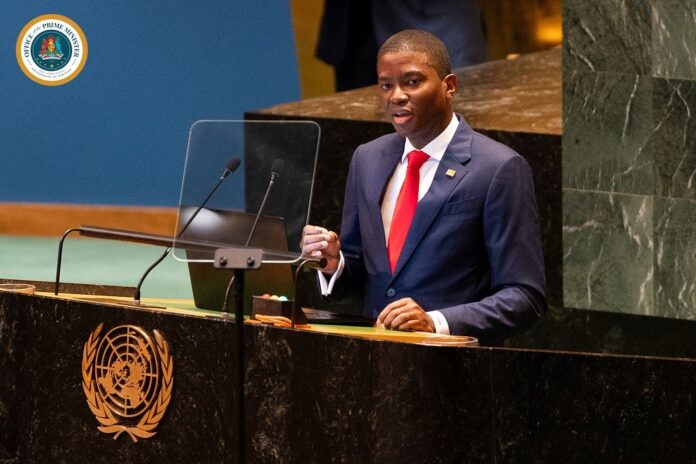Grenada Prime Minister Dickon Mitchell has called on former colonial powers to apologize and pay compensation for their role in the enslavement of Africans. Mitchell made the statement during the 48th Heads of Government meeting of the Caribbean Community (CARICOM) in Barbados, where European Commission President Ursula von der Leyen was attending for the first time.
“I don’t mean to be impolite,” Mitchell said, addressing von der Leyen directly, “But I will say it to you: the issue of reparations… is an issue we will take up with you.” He emphasized that the Caribbean owes it to both present and future generations to recognize slavery as a crime against humanity, and to ensure that appropriate apologies and compensation are provided. Mitchell further stressed the importance of the international community accepting that such atrocities should never be repeated.
In response, von der Leyen acknowledged the gravity of slavery as a crime against humanity but did not directly address the issue of reparations. She stated, “Slavery is a crime against humanity… and the dignity and universal rights of every single human being is untouchable and must be defended by all means.”
Between the 15th and 19th centuries, over 12.5 million Africans were forcibly taken from their homes, transported by European merchants, and sold into slavery. Calls for reparations have long been a topic of discussion, gaining increasing support in recent years, particularly from CARICOM and the African Union (AU).
CARICOM has developed its own reparations plan, which includes demands for technology transfers, investments to address health crises, and efforts to combat illiteracy. The AU is also working on a similar plan. In 2023, the EU and the Community of Latin American and Caribbean States (CELAC) included in their summit’s final statement a paragraph recognizing the “untold suffering” caused by slavery and its lasting impact on millions.















